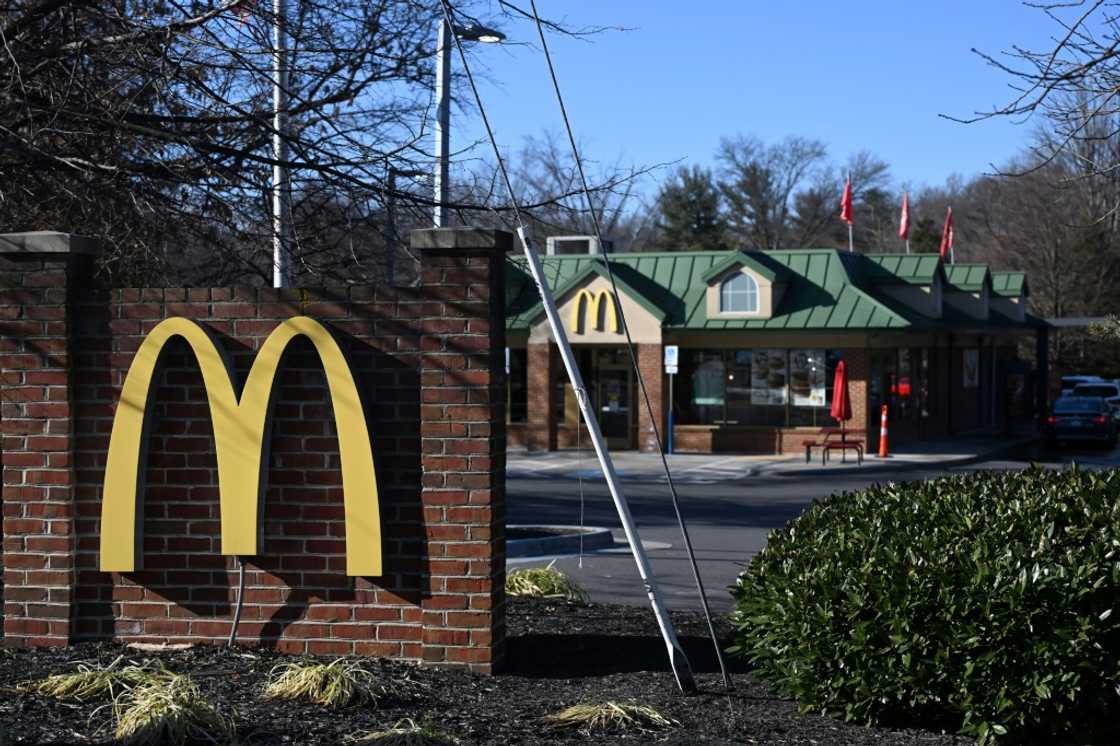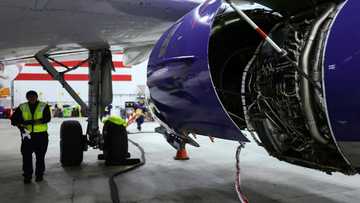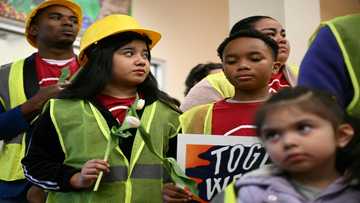California fast food workers get $20 hourly minimum

Source: AFP
The minimum wage for many fast food workers in California rose to $20 per hour on Monday, sparking joy for employees but warnings of likely price increases in the state which already faces a high cost of living.
Staff flipping burgers or making tacos at large chain restaurants will now be guaranteed one of the highest base rates in the country.
"It'll help me breathe a little easier in terms of paying my rent and even buying groceries," said Angelica Hernandez, who works at a McDonald's in Los Angeles.
"In all of my 19 years working in this industry... maybe 25 cents would be the max that we would get a year if we were 'good workers,' so this is a huge raise."
More than half a million people in California are employed in the fast food sector, at globally familiar chains like Burger King and Taco Bell, but also smaller home-grown brands like In-N-Out Burger.
Tia Koonse of the University of California, Los Angeles said the vast majority of workers in the industry are women and people of color, with a sector-wide median annual wage of $25,800 -- way below the state median of $43,000.
"There's a common misconception that fast food workers are teenagers working for pocket change or the latest iPad or whatever," she told reporters.
"But the truth is that well over half are over 25... and a quarter are actually the main earners in their home."
The hike in the minimum wage from $16 an hour will go some way to improving the lives of people who are disproportionately likely to fall below the official poverty line, she said.
The California legislation, signed into law last year by Democratic Governor Gavin Newsom, applies only to establishments with little or no table service and that have at least 60 sites nationwide.
Some chains have said they will need to increase prices and warn the wage hikes could ultimately cost jobs.
"Everyone is going to have to pay more," said Jack Hartung, chief financial officer of Chipotle Mexican Grill, according to the Wall Street Journal.
'Layoffs'
Chipotle, which is headquartered in California, has already raised its prices four times in the last two years, and says it is considering further increases of up to nine percent to cover the wage hikes.
Alexander Johnson -- who operates a number of franchises of Cinnabon bakeries and Auntie Anne's, a pretzel chain, in the San Francisco Bay area -- told ABC7 that he was considering layoffs and higher prices to cover the $470,000 increase in costs.
"It means that we have to raise prices, which we don't want to do," he said.
Economists are divided on the effects of the minimum wage, which is set at $7.25 federally, though varies widely by state.
A recent Congressional Budget Office study found raising the federal minimum to $17 an hour could help 18 million people over the next five years, but could cost 700,000 jobs.
UCLA's Koonse argued that layoffs in California were both unlikely and unnecessary.
"California has added 142,000 jobs to the fast food industry since minimum wage started going up in 2015," she said.
Outlets in some of the state's more expensive cities are already paying staff upwards of $20 an hour, either because of local rules or market forces, she said, adding the industry's big names have experienced record profits since 2018, further fueled by the pandemic.
"Surely instead of layoffs, they can share some of those profits with the poorest workers in California."
PAY ATTENTION: Stay informed and follow us on Google News!
Source: AFP




